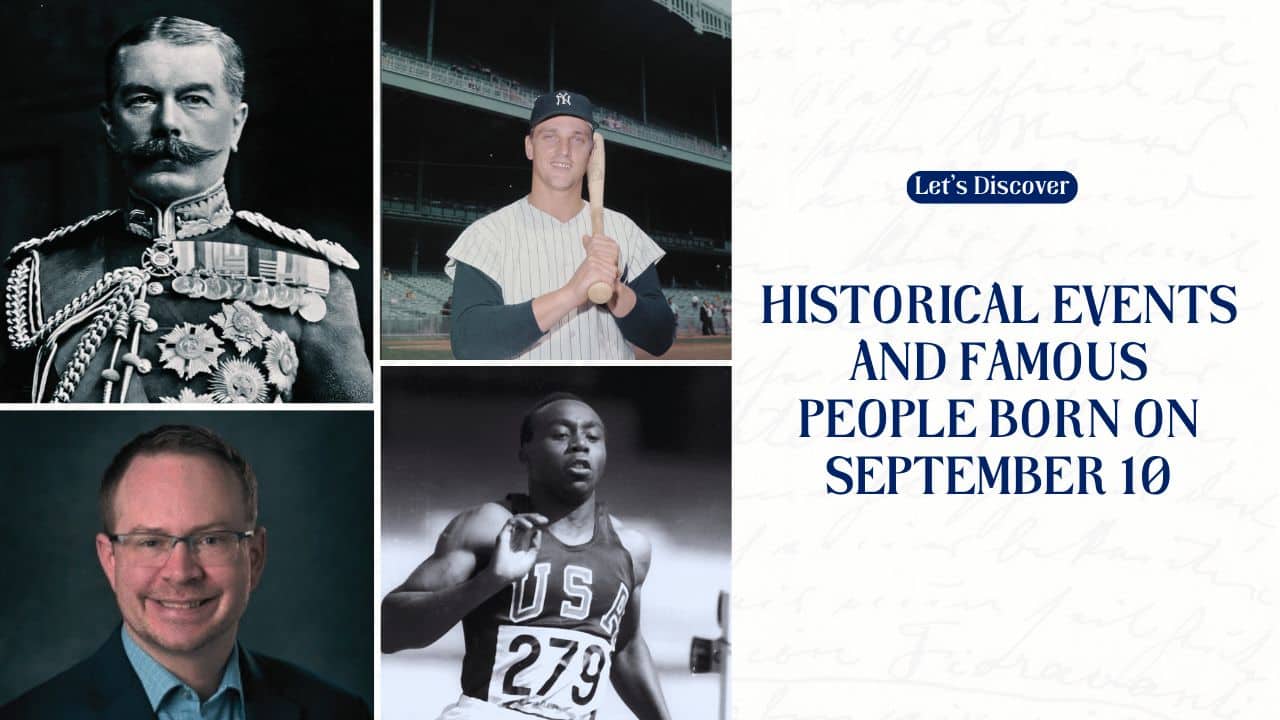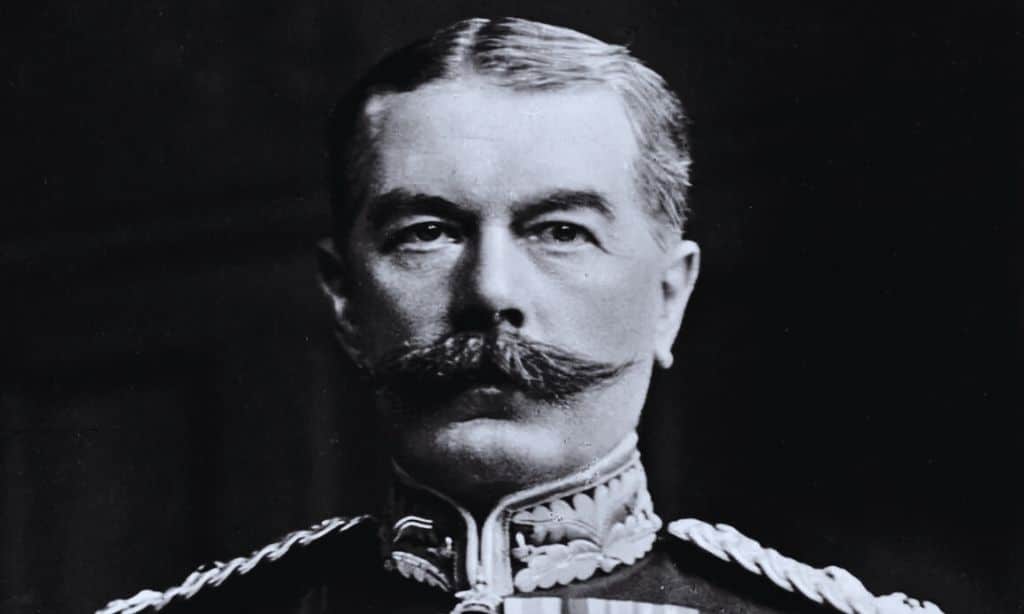September 10 is a day filled with important events and birthdays of notable people. This article will explore five big events that happened on this day and five famous people born on September 10. We’ll look at how these events and people changed history and made the world what it is today.
Historical Events on September 10
1547: English demand for royal marriage
In 1547, something unusual happened in England. The English people asked for their young king, Edward VI, who was only 10 years old, to marry Mary Queen of Scots, who was just 5 years old. This was during a time called the Tudor era when England was going through many changes.
Why did they want this marriage? The English hoped it would bring peace between England and Scotland, two countries that often fought each other. They thought if the rulers of both countries were married, it might stop the fighting.
However, this marriage never happened. Edward VI died young, and Mary went on to become the Queen of Scotland. While the marriage didn’t work out, it shows how people back then used royal marriages to try and solve political problems.
1846: Elias Howe’s sewing machine patent
On September 10, 1846, a man named Elias Howe did something that would change how clothes were made. He got a patent (a special document that protects new inventions) for a new kind of sewing machine called a lockstitch sewing machine.
Before Howe’s invention, people had to sew clothes by hand. This took a long time and was hard work. Howe’s machine could sew much faster than a person could by hand.
Howe’s invention was a big deal. It helped start what we call the Industrial Revolution in the clothing industry. Factories could now make clothes much faster and cheaper. This meant more people could afford to buy new clothes more often.
1898: Lord Kitchener’s confrontation at Fashoda
In 1898, an English soldier named Lord Kitchener sailed to a place called Fashoda in Sudan. He went there because England and France were both trying to take control of parts of Africa.
This event, called the Fashoda Incident, was part of what historians call the “Scramble for Africa.” This was a time when European countries were racing to claim African lands for themselves.
When Kitchener got to Fashoda, he found French soldiers there. Both sides thought they had the right to control this area. This caused a lot of tension between England and France.
In the end, France decided to leave Fashoda to avoid a war with England. This event helped England gain more control in Africa and changed how European countries dealt with each other in Africa.
1939: Canada declares war on Germany
On September 10, 1939, Canada made a big decision. Led by Prime Minister Mackenzie King, Canada declared war on Germany. This happened just after World War II had started.
Canada didn’t have to join the war right away. Even though it was part of the British Empire, Canada could make its own choice about going to war. After thinking about it for a week, Canada decided to support its allies and fight against Germany.
This decision was important for a few reasons. It showed that Canada was becoming more independent in making big decisions. It also meant that Canada would play a big role in World War II, sending soldiers, supplies, and support to help the Allies win the war.
1960: Abebe Bikila’s Olympic victory
On September 10, 1960, something amazing happened at the Olympic Games in Rome. Abebe Bikila, a runner from Ethiopia, won the marathon race. What made this win special was that Bikila ran the whole race barefoot!
Bikila finished the race in 2 hours, 15 minutes, and 16.2 seconds. This was a new world record. Even more importantly, Bikila’s win was the first time an athlete from Africa won a gold medal at the Olympics.
This victory was a big moment for African sports. It showed that African athletes could compete and win at the highest levels of international sports. Bikila became a hero in Ethiopia and inspired many other African athletes to pursue their dreams.
Famous Birthdays on September 10
Peyton Randolph (1721-1775)
| Key Facts | Details |
|---|---|
| Born | September 10, 1721 |
| Birthplace | Williamsburg, Virginia |
| Occupation | Lawyer, Politician |
| Famous for | First President of the Continental Congress |
| Died | October 22, 1775 |
Peyton Randolph was an important person in early American history. He was born into a wealthy family in Virginia and became a lawyer. Randolph played a big role in America’s fight for independence from Britain.
In 1774, Randolph became the first president of the Continental Congress. This was a group of leaders from the American colonies who met to discuss problems with British rule. Although Randolph died before America became independent, his work helped pave the way for the creation of the United States.
Elsa Schiaparelli (1890-1973)
| Key Facts | Details |
|---|---|
| Born | September 10, 1890 |
| Birthplace | Rome, Italy |
| Occupation | Fashion Designer |
| Famous for | Innovative and surrealist designs |
| Died | November 13, 1973 |
Elsa Schiaparelli was a famous fashion designer from Italy. She was known for her unusual and creative designs that were different from what other designers were doing at the time.
Schiaparelli worked with many artists to create unique clothing and accessories. She was one of the first designers to use zippers as decoration and to create clothes with built-in jewelry. Her work was so different and exciting that it changed how people thought about fashion.
Even though Schiaparelli stopped designing in the 1950s, her ideas still influence fashion today. Many modern designers look at her work for inspiration.
Terence O’Neill (1914-1990)
| Key Facts | Details |
|---|---|
| Born | September 10, 1914 |
| Birthplace | London, England |
| Occupation | Politician |
| Famous for | Prime Minister of Northern Ireland (1963-1969) |
| Died | June 12, 1990 |
Terence O’Neill was an important political leader in Northern Ireland. He became Prime Minister of Northern Ireland in 1963 and stayed in this job until 1969.
O’Neill tried to make changes in Northern Ireland to improve relations between Protestants and Catholics. At the time, these two groups often didn’t get along. O’Neill wanted to make things fairer for everyone and to help the economy grow.
However, many people didn’t like O’Neill’s ideas. Some thought he was changing things too fast, while others thought he wasn’t doing enough. In the end, O’Neill had to step down as Prime Minister. Even though not all of his plans worked out, O’Neill’s efforts to bring people together are still remembered today.
Roger Maris (1934-1985)
| Key Facts | Details |
|---|---|
| Born | September 10, 1934 |
| Birthplace | Hibbing, Minnesota |
| Occupation | Baseball Player |
| Famous for | Setting single-season home run record (61) in 1961 |
| Died | December 14, 1985 |
Roger Maris was a famous baseball player. He played for several teams in Major League Baseball, but he’s best known for what he did in 1961 when he played for the New York Yankees.
In that year, Maris hit 61 home runs. This broke the old record of 60 home runs in a single season, which had been set by Babe Ruth in 1927. Maris’s record stood for 37 years until it was broken in 1998.
Maris was a great player in other ways too. He was chosen for the All-Star team seven times and won the American League Most Valuable Player award twice. Even though he faced a lot of pressure when he was chasing the home run record, Maris is remembered as one of baseball’s best players.
Jim Hines (1946-2023)
| Key Facts | Details |
|---|---|
| Born | September 10, 1946 |
| Birthplace | Dumas, Arkansas |
| Occupation | Athlete |
| Famous for | First man to run 100 meters in under 10 seconds, Olympic gold medalist |
| Died | June 3, 2023 |
Jim Hines was a very fast runner who made history in track and field. He was born in Arkansas but grew up in Oakland, California, where he started running competitively.
Hines’s biggest moment came at the 1968 Olympic Games in Mexico City. He won two gold medals there – one in the 100-meter race and another in the 4×100-meter relay. In the 100-meter race, Hines became the first person to officially run the distance in less than 10 seconds.
Hines’s achievements were important not just for him, but for all African American athletes. He showed that with hard work and determination, it was possible to succeed at the highest levels of sport.
Takeaway
September 10 has been a day of important events and notable births throughout history. From political decisions that shaped nations to athletic achievements that inspired millions, this date has seen its share of significant moments. The people born on this day have left their mark in various fields, from politics and sports to fashion and law. By looking at these events and people, we can better understand how the world has changed over time and appreciate the contributions of those who came before us.
References:
- Alison Weir, “The Children of Henry VIII” (1996)
- James Parton, “History of the Sewing Machine” (1867)
- Thomas Pakenham, “The Scramble for Africa” (1991)
- C.P. Stacey, “Arms, Men and Governments: The War Policies of Canada, 1939-1945” (1970)
- David Maraniss, “Rome 1960: The Olympics That Changed the World” (2008)
- Jack Greene, “Peyton Randolph and Revolutionary Virginia” (1998)
- Meryle Secrest, “Elsa Schiaparelli: A Biography” (2014)
- Marc Mulholland, “Terence O’Neill” (2013)
- Tom Clavin and Danny Peary, “Roger Maris: Baseball’s Reluctant Hero” (2010)
- Roberto Quercetani, “A World History of Track and Field Athletics, 1864–1964” (1964)





































